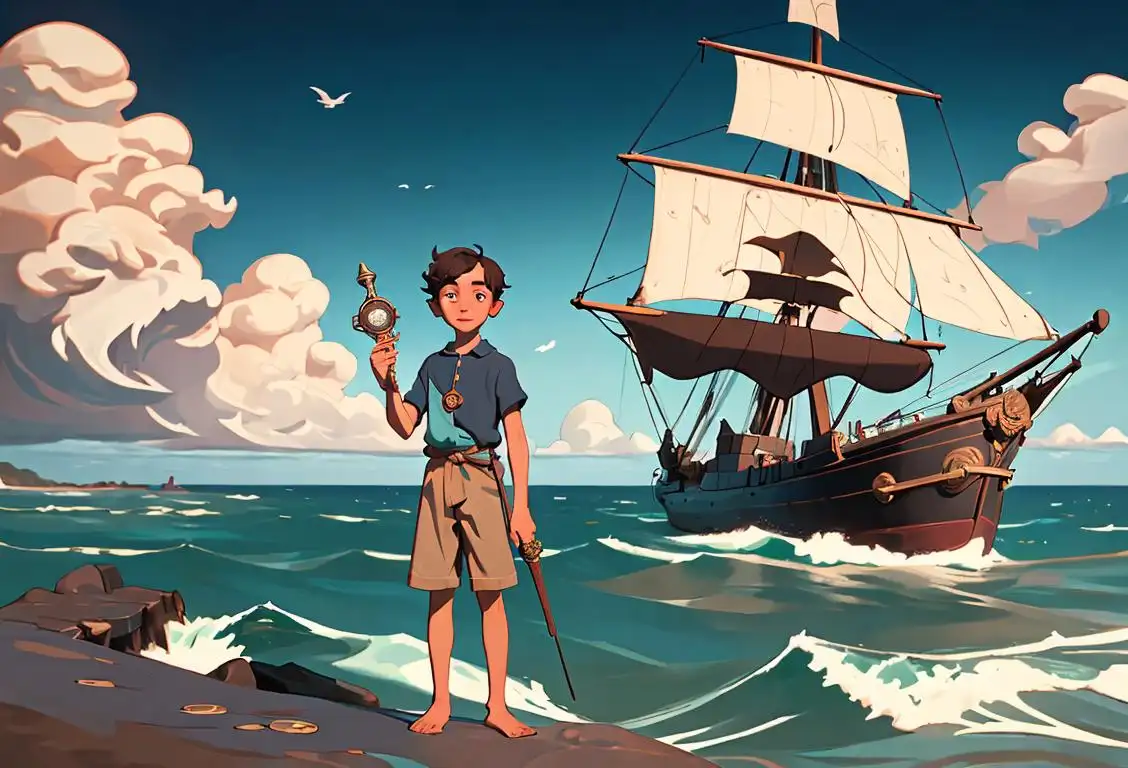National Columbus Day

Ahoy there! Welcome to the world of National Columbus Day, a day where we celebrate the intrepid explorer who sailed the ocean blue. So grab your compass and join me on this historical adventure!
When is Columbus Day?
It's national columbus day on the 14th October.
Internet History of National Columbus Day:
On October 12, 1492, Christopher Columbus made his famous voyage across the Atlantic Ocean, reaching the shores of a land he believed to be India. Little did he know that he had stumbled upon the Americas, a continent teeming with diverse cultures, rich resources, and TikTok challenges waiting to happen.
Since then, Columbus has been credited with opening up the New World to Europe, forever altering the course of history. But, like any historical figure, Columbus's legacy is a complex one. While he is celebrated as a pioneer by some, others criticize his treatment of indigenous populations and the violence that accompanied European colonization.
Actual National History of National Columbus Day:
The national observance of Columbus Day in the United States began in the late 19th century, thanks to the efforts of Italian-American communities. They saw Columbus as a symbol of the contributions Italian immigrants had made to the country. In 1937, Columbus Day became a federal holiday, and it is now celebrated on the second Monday of October each year.
Over time, the significance of Columbus Day has evolved. Today, it serves as a celebration of Italian-American heritage, exploration, and discovery. It's a day to honor the spirit of adventure and curiosity that drove Columbus to embark on his historic voyage.
History behind the term 'Columbus'
1492
The First Voyage
In 1492, Christopher Columbus embarked on his first voyage across the Atlantic Ocean. Sponsored by the Catholic Monarchs of Spain, he set sail with three small ships: the Santa Maria, the Pinta, and the Niña. Columbus was searching for a new route to the Far East but instead stumbled upon the Americas, specifically the islands of the Caribbean. This accidental discovery would forever change the course of world history.
1493
Name of the Term
After Christopher Columbus returned to Europe from his first voyage, news of his discovery spread rapidly. In 1493, a German cartographer named Martin Waldseemüller created a world map that depicted the newly discovered lands. He named the continent 'America' after the Latin version of the name 'Amerigo Vespucci,' an Italian explorer who also explored the region. The term 'Columbus' became synonymous with the European discovery of the Americas.
1792
Columbus Day Established
Over three centuries after Christopher Columbus' first voyage, the United States officially recognized his contributions with the establishment of Columbus Day. On October 12, 1792, the New York Society of Tammany or Columbian Order celebrated the 300th anniversary of Columbus' arrival in the Americas. This celebration marked the beginning of the annual commemoration which would later become a federal holiday.
1937
Columbus Day as a Federal Holiday
In 1937, President Franklin D. Roosevelt proclaimed October 12 as Columbus Day, marking it as a federal holiday. The purpose was to honor Columbus' pioneering spirit, his historic voyage, and his role in the establishment of European influence in the Americas. It served as a celebration of the Italian-American heritage and their contributions to American culture.
1971
Columbus Day Recognized Nationwide
In 1971, the Uniform Monday Holiday Act was enacted, and Columbus Day became recognized and celebrated nationwide on the second Monday of October. The Act aimed to provide more three-day weekends for workers by moving certain holidays to Mondays. Columbus Day was one of the holidays affected by the Act, ensuring a consistent observance across the country.
Did you know?
Did you know that Columbus wasn't actually the first European to reach the Americas? Norse explorer Leif Erikson and his Viking crew landed in North America around the year 1000, almost 500 years before Columbus set sail. Talk about an early bird explorer!Tagged
romance awarenessFirst identified
9th October 2017Most mentioned on
14th October 2019Total mentions
19Other days
Suicide Prevention Month Day
Iloveyou Day
Happiness Day
Do Something Nice Day
Compliment Day
Single Ppl Day
Dance Day
Honesty Day
Kiss A Ginger Day
Kissing Fried Chicken Day









